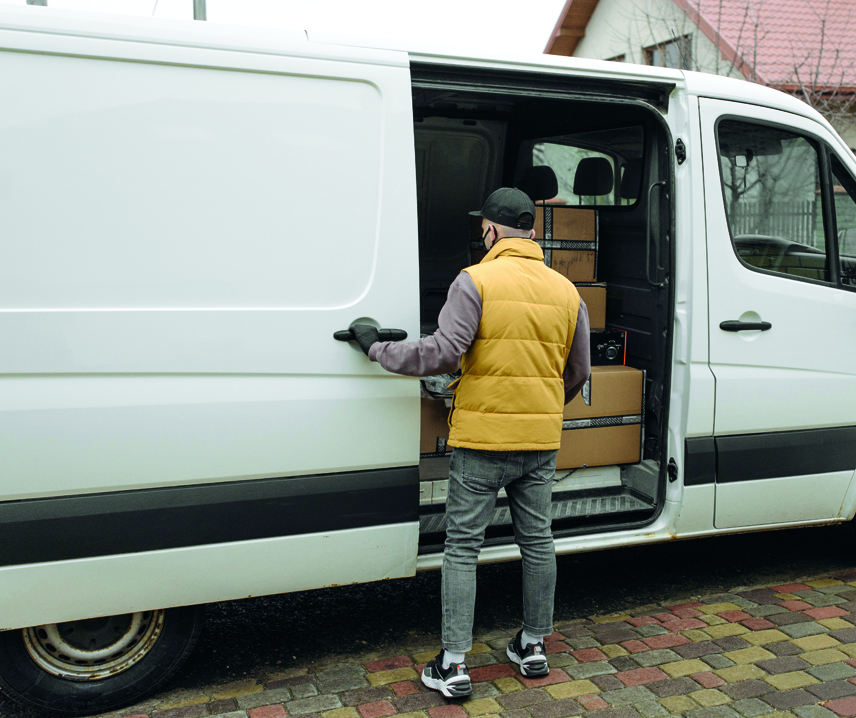
Maybe you are a taxi driver who has looked to courier work until the market returns somewhere to near normal or you are helping with local deliveries while shops are shut. What type of courier insurance will you need to cover you whilst out and about in the short-term?
With the COVID pandemic taking its toll on the British economy, one shining sector continues to grow. Home deliveries are one of the few areas of growth with more of us then ever ordering goods and shopping online. The latest figures from web industry organisation IMRG shows online sales up by more than a half in the middle of November from the same point in 2019.
Online grocery sales now make up 13 percent of all food sales, up from 7.4 percent in March 2020. Analysis by Metapack, which provides software solutions to companies such as Marks & Spencer and John Lewis, reveals the parcel volumes going through its systems were 70 percent higher than the corresponding week in 2019. Delivery company DPD is recruiting 3,500 new drivers and Hermes is taking on 9,000 new self-employed couriers.
If you are thinking of pivoting your business into the courier sector, even as a part-time or short-term boost to your finances, you need to be aware that even you still need to have appropriate courier insurance coverage in place for you to legally trade as well as to protect your business.
Courier Insurance Basics
Courier insurance is designed to protect you as a delivery driver, as well as the vehicle you drive (yours or someone else’s) and the goods you transport. But getting the right level of courier insurance for you depends on the type of business you run. There are certain risks associated with delivery work, such as theft or loss of your consignment, damage in transit or the possibility of accidents when delivering to lots of locations in a hurry.
A proper motor trade insurance policy should protect you against the risks you pose to other road users as well as their vehicles, property and persons. Even if you are part-time or short-term and use your own car to deliver shopping, then courier insurance is necessary because private car, motorbike or van insurance won’t cover you for this specific type of business use. That could leave you precariously exposed.
Courier insurance premiums tend to be a bit more expensive than private vehicle insurance because of the additional risks associated with the high mileage, making multiple stops, and working against the clock.
Courier insurance is designed to protect you against the particular risks you face. They include:
- Making lots of stops during a single trip
- Higher than usual daily mileage
- A range of cargo types of different values
What Level of Insurance Cover Will I Need?
When choosing the right level of cover, it’s important to remember that couriers spend most of their time on the road, which increases your chances of being involved in an accident or suffering loss. The levels of cover available include:
- Third party only – This is the minimum cover required by law and will protect third party liabilities in the event of an accident.
- Third party fire and theft – Includes the same cover as third party only with additional protection for fire or the theft of your vehicle.
- Comprehensive – Provides the same cover as third-party fire and theft but also protects you and your vehicle for any damage sustained as a result of an accident.
For the part-time or short-term courier, some insurance companies are designing several specially adapted insurance policies for car and van owners who find themselves having to pivot their business. This could be as low as a 30-day policy for delivery drivers. And for those using their own car, a short-term policy is adaptable to change your car’s use from social and domestic without binding you to a full insurance policy. When it expires you can just pay for another month’s cover or let the policy stop when you re-pivot back to your old job once again.
Courier insurance can also include public liability, employers’ liability and a wide range of different cover types to protect you against every eventuality. Contact your insurance broker to find out the best deal for your business.